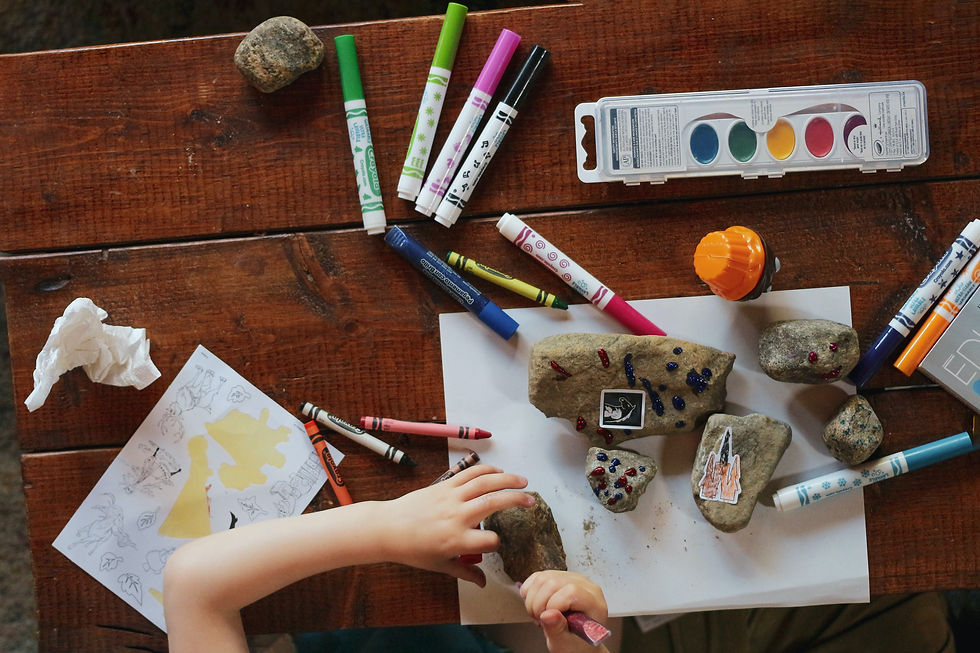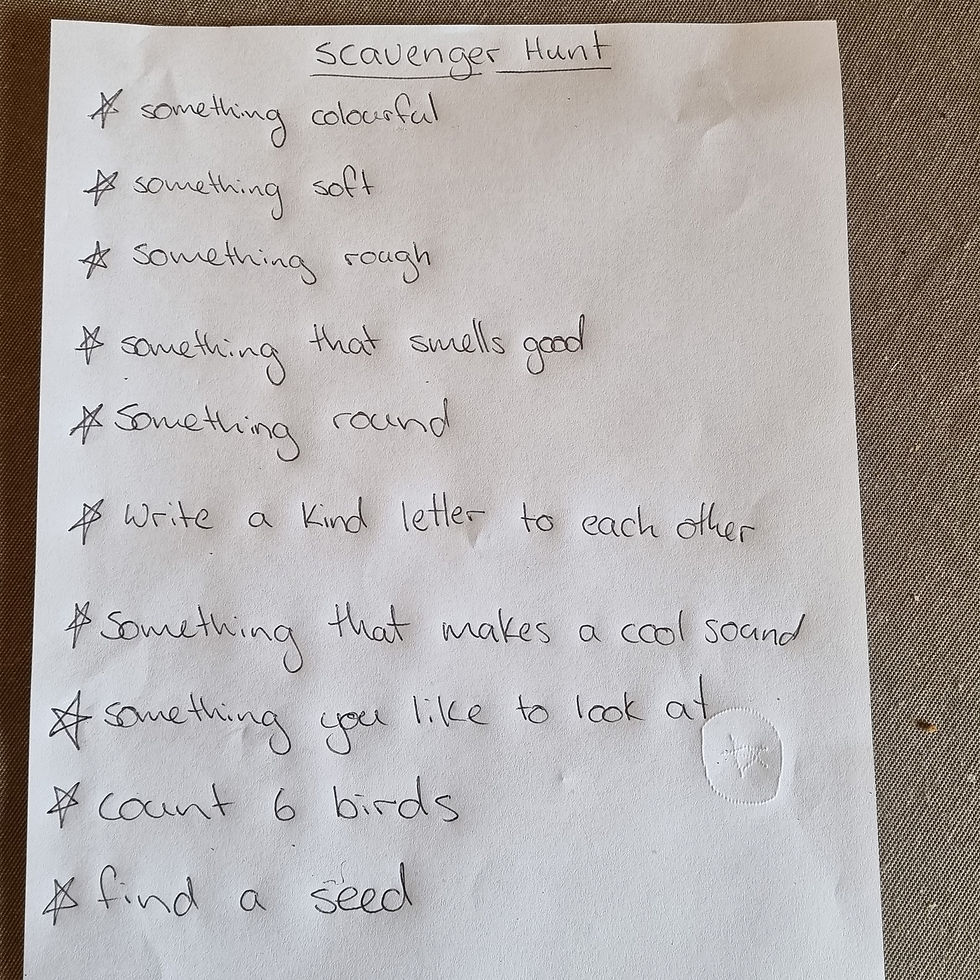Here in Australia, most of us have been looking forward to the end of term and the school holidays. Kids everywhere are ready from a break from the daily routine of school. At the height of this excitement, when parents were planning trips away and kids were planning to meet up with friends, lockdowns, travel restrictions and mask wearing hit. A time that is meant to be relaxing became incredibly stressful. Parents are at their wits end trying to keep their kids amused without the usual entertainment options. Kids are disappointed, and this is going to come out in behaviour, usually towards their siblings. What makes these restrictions feel more intense is that we have been here before. There is no blind ignorance, we know how hard it has been and we carry the emotion from previous lockdowns with us.
So how do we manage the emotional fallout, and make the school holidays and enjoyable time?

Be ready for when things become overwhelming.
Talk as a family about how we can all be feeling stressed and it is okay to feel overwhelmed. If you talk about it early, you can have a plan for what everyone can do if they feel this way. By doing this, you normalise that we can all struggle with emotions, but we can manage them. If we have a plan for when the emotions get overwhelming, it will be less scary when it does happen. Talk about how your child might feel sad that they miss their friends, annoyed because they are sick of being home or angry because their siblings keep touching their stuff. These are all perfectly reasonable feelings to have. What we need to help our kids to understand is that they may not have control over the virus, the isolation and how long it will last, but they do have choices when it comes to managing these feelings.
It could be helpful to have a space to could go to if someone needs a break from everyone. You could have some sensory calming activities ready to go like blowing bubbles, a glitter jar (see my previous blog on relaxation), colouring, play-dough, music, books or other calming activities. It is a good idea to have your children come up with their "calming activities" and have them ready for when they are needed. Kids aren’t likely to just go and do these activities themselves straight away, you will have to coach them. You could say, “You seem like you are getting frustrated easily, how about we do one of your calming activities?” It is important that you don’t use this as a punishment. Don’t send them there if they are in complete meltdown. This will be counterproductive and they won’t want to do these activities in the future. You will have to coach your kids to recognise when they are starting to feel dysregulated and when to calm. You could help them by saying “Do you need a hug right now?" so that they know that it is okay to ask for help when we are struggling.

How to have fun during a Lockdown Holiday
While our plans may have had to change for the holidays, it doesn’t mean that we can’t have fun, it just means we have to think a bit more creatively. Everyone will have different ideas of fun and it is important to recognise everyone's needs. I usually like to write a list with my kids of what they would like to do in the holidays and tick them off as we do them. That way we feel like everyone go to do somethin they enjoyed and it feels like the holiday wasn't wasted.
For the highly Social Adventurer
If you read my Blogs you will know that I am cautious when it comes to screen time with kids. But I also know that kids who thrive on social interaction will be struggling in isolation, and for their mental health, we need to meet that need. You can get them on the phone or Skype to talk to friends and family. Applications like Zoom, allow you to enjoy online video calls with multiple people. This is particularly helpful if their birthday happens during isolation.
Another way to share time with friends is to watch movies and videos with them virtually. For example, Google Chrome offers an extension called Netflix Party, which allows people to watch movies or TV shows simultaneously and remotely. A chat feature enables viewers to share their comments in real time. Or just have a dance party at home with dress up and decorations.
To add a little adventure, some of the greatest museums around the world have online tours. Why not travel to France with a virtual tour of some of the Louvre’s most popular exhibits. You can visit the Vatican Museums, and many, many more museums throughout the world. Zoos and animal parks are doing live streams and even NASA is offering virtual tours.
To help with the need for connection, you could do letterbox drops to people in the neighborhood. If you are lucky enough to have other children or willing adults in your street, you could have your child write letters, make crafts etc and drop them off to other people. Hopefully they will join in and drop things off to your child too.

For the Quiet Creator
The most important thing for these kids is recognizing that they might need space from everyone in the house. Let them have time away from siblings and even parents. It doesn't mean they are depressed, they just need space to regroup. Let them have a sign on their door so nobody bothers them when they feel like this. If they share a room, then have a space for them that means they need a break if they go there and everyone has to leave them alone.
They will probably already have hobbies they like but perhaps they can build on it. There are many free drawing lessons online, Lego challenges , craft and so many other resources. These kids are not anti-social, they may need more one on one time. If parents are working from home and having to deal with everyone else in the family, this may be hard. While we may not be able to have grandparents involved physically, they can still help out here. Grandma can still read them a story on a video call, or watch them build something, we just have to be a bit more creative in how we do this.

As the Parent
In trying to work out what your children need and support them, don't forget yourself and your partner. We all know that we are not the best parents when we are on edge and stressed. What do you need to recharge? What helps you feel refreshed ? Making times for these things is just as important for you as it is your kids. They need you to be okay. If you are climbing to walls from not enough social interaction, or if you are drained and exhausted from too much "people time", then you are not okay.
Have the conversation with your family. Let everyone have their say of what they need. By parents saying "sometimes I need time alone", you are making this normal and okay. Children and partners won't see it as you avoiding them if you need some space if you explain that this is something that is important for you so you can feel refreshed. In a similar way if someone in the family needs more social attention, you can all brainstorm how to do this. Having the conversation means that everyone will feel more comfortable explaining their needs and for children (and adults really) this means they will be less likely to let it build up to the point of emotional outburst.
For everyone
Resilience in difficult times is built on gratitude. Gratitude is being able to recognise and appreciate all that is around you and within you. When you look for the positives you will be amazed at how many things there are and you magnify the pleasure that you get from life. It is focusing on what you have rather than focusing on what you lack. You can do this easily with fun activities
Go for a mindful walk: pay attention to the things that you see, feel, hear and smell. Find the things that you enjoy that are around you. Recognise the warmth on your skin and the smell of the breeze. This really helps you appreciate the beauty that is around you.
Mindful scavenger hunts: Write a list of thing for the kids to find that they can even do in the backyard. Focus on the senses, such as find something colourful, something rough, 6 birds, something with a cool sound etc
Share gratitude together: When we are teaching children how to recognise the things they are grateful for, it can help to make it part of your routine. Each night at the dinner table or before bed, take some time for everyone to share what they are grateful for in their day. It is important for children to see that even though it may have felt like a “bad” day, there are always things to be grateful for. When you do this as a family, children gain an understanding of what others appreciate too. I have found that after you have been doing this for a while, you have to get more creative in your thinking. You can’t keep saying “that I have a house, family, food”. All those things are good but you will eventually need to think a bit deeper. Have your kids think of how things in their lives have improved? What have they learnt that they couldn’t do before? Did they see something beautiful in the day? What made them smile?

The pandemic has changed our lives in so many ways and to have our holidays feel like they have been taken too is devastating. But there are things that we can do to help manage the emotions that comes with this stressful time and still enjoy a holiday together.
Comments